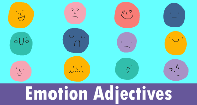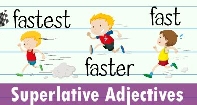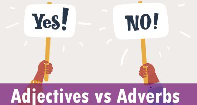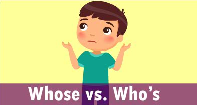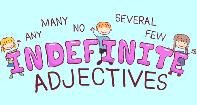Change Avatar
Indefinite Adjectives
Indefinite Adjectives
Indefinite adjectives are words used to describe a noun in a more general way. There is always an element of mystery when using an indefinite adjective, because we just don’t know which things they refer to specifically.
Common indefinite adjectives include:
| All | Many | Another | Some |
| Few | Everyone | Several | Any |
| Both | Each | Either | Neither |
| Enough | Sufficient | Much | Nobody |
| Somebody | Everybody |
It helps to memorize these in the three groups above, as the terms are related.
In this case, the indefinite adjective becomes what we call a “quantifier,” meaning that it tells how many in a general sense.
How do you use them?
Here are some great examples of using indefinite adjectives. Remember that they’re used when you want to give a general, non-specific description of a noun or group.
• Any dog is a friend of mine.
Any is an indefinite adjective describing the noun dog.
• I like most chocolates in the assortment.
Most is an indefinite adjective describing the noun chocolates.
• Several players had to sit out due to health concerns.
Several is an indefinite adjective describing the noun players.
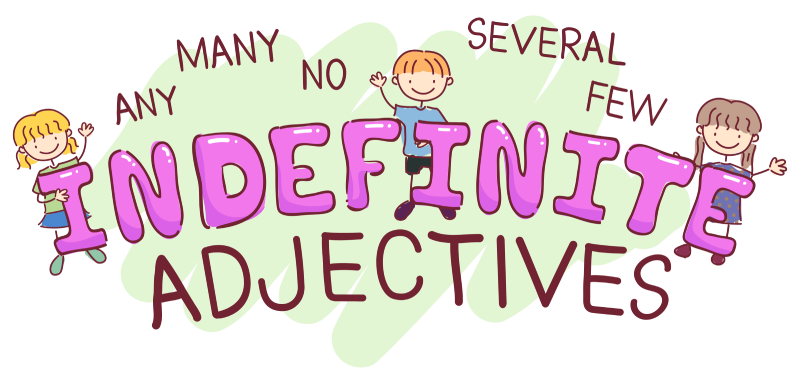
PITFALLS TO AVOID!
There are some common writing mistakes associated with indefinite adjectives that you will want to avoid. Here are the top 2:
1 Using less instead of fewer - Is it countable?
Countable nouns are ones you can physically count, like dogs or apples. Uncountable nouns can be measurable if you put them in a container, but are generally uncountable, like plastic or milk or room.
Less should always be used with uncountable nouns.
Fewer means “not as many” and is used with countable nouns.
Tip! To determine if a noun is countable, try making it plural. If it makes sense, you should use fewer!
The kids drank less milk today than yesterday. Sounds great!
The kids drank fewer milks today than yesterday. Sounds silly!
There are a few exceptions to this rule, such as with money, time, and weight, but in general the rule stands.
Countable = fewer
Uncountable = less
2 Each is usually singular.
The indefinite adjective each is usually singular, which means it corresponds with a singular pronoun. But we have come to use the pronoun “their” to represent both male and female singular options in this instance.
For example…
Each student has his own backpack. -or- Each student has her own backpack.
But more than likely the students represent both male and female.
You can either say…
Each student has his or her own backpack.
or
Each student has their own backpack.
CAREFUL!
Don’t confuse indefinite adjectives with indefinite pronouns, which function as pronouns (and thereby subjects) on their own. Remember that adjectives always describe or modify a noun.
The noun which is replaced by the indefinite pronoun would be mentioned in earlier conversation.
For example,
There are several pencils in the jar.
Several functions as an indefinite adjective modifying the noun pencils.
There are several in the jar.
Several functions as an indefinite pronoun referring to the noun pencils used in the
previous sentence.
Or…
Only a few deer have been seen in the woods this fall.
Few is an indefinite adjective modifying the noun deer.
Only a few have been seen in the woods this fall.
Few is an indefinite pronoun referring to the noun deer used in the previous sentence.
They can even be used in the same sentence! For example…
I like many types of music, but only a few are my favorite.
Many is an indefinite adjective modifying the noun types, AND
Few is an indefinite pronoun replacing the noun types.




